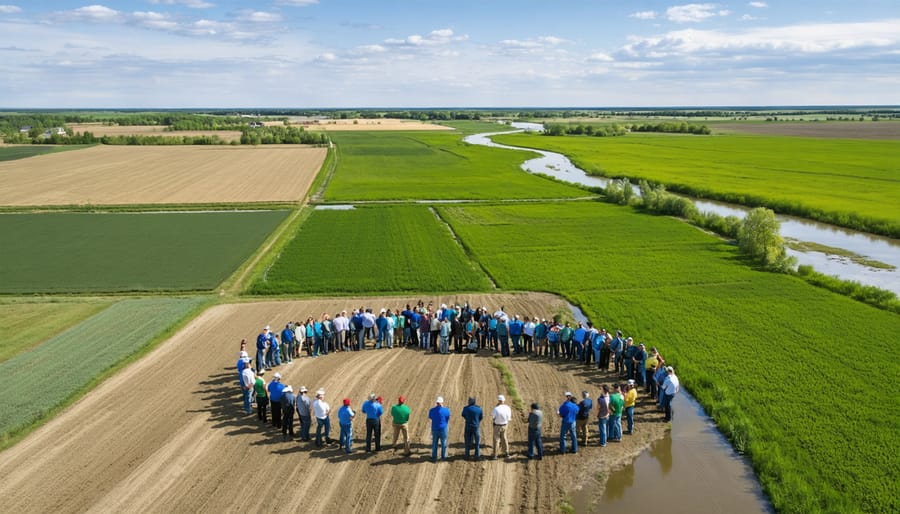To create an economy that consumes less carbon in the future, farmers can contribute a lot to this. This is especially true in Alberta since it has the boreal forest and grasslands, which are 2 crucial carbon sinks. Moreover, this is where ⅓ of Canada’s agricultural land is. You can also find here some of the greatest solar and wind energy resources.
Many people see solutions to climate issues as a burden in their daily lives. However, farming is one of these solutions. Besides resolving climate issues, farming also offers a lot of benefits such as better soil fertility, more economic opportunities, better management of ...
-
Climate Adaptation and Resilience
How Alberta Farmers Are Winning Against Climate Change (With Their Neighbors’ Help)
Transform agricultural resilience by implementing drought-resistant crop rotations, diversifying income…
-
Climate Adaptation and Resilience
How Alberta Farmers Are Winning Against Climate Change (With Their Neighbors’ Help)
Transform agricultural resilience by implementing drought-resistant crop rotations, diversifying income…
-
Education and Knowledge Sharing
Building Climate-Strong Communities: How Alberta Farmers Are Leading Local Climate Action
Building climate resilience starts at the local level, where Alberta’s…
-
Water Management and Conservation
How Alberta Farmers Are Building Stronger Communities Through Watershed Management
In the heart of Alberta’s agricultural landscape, watershed management has…



